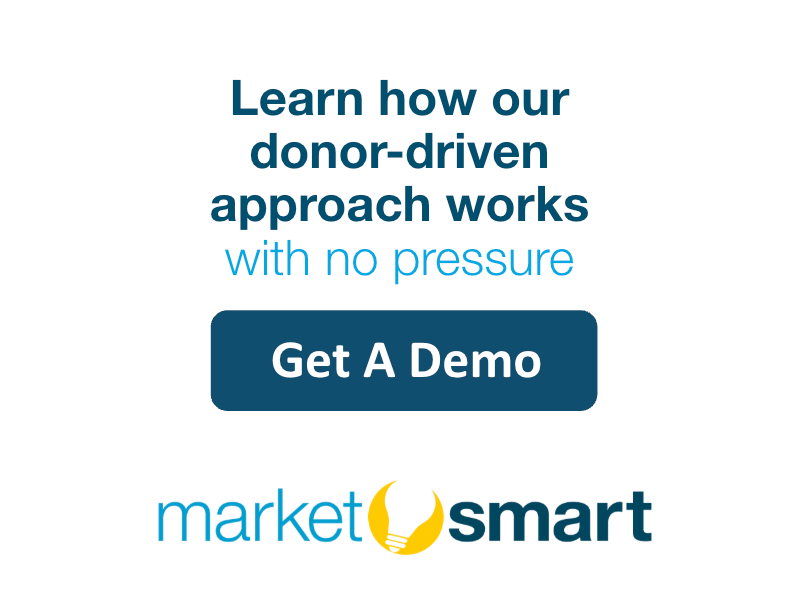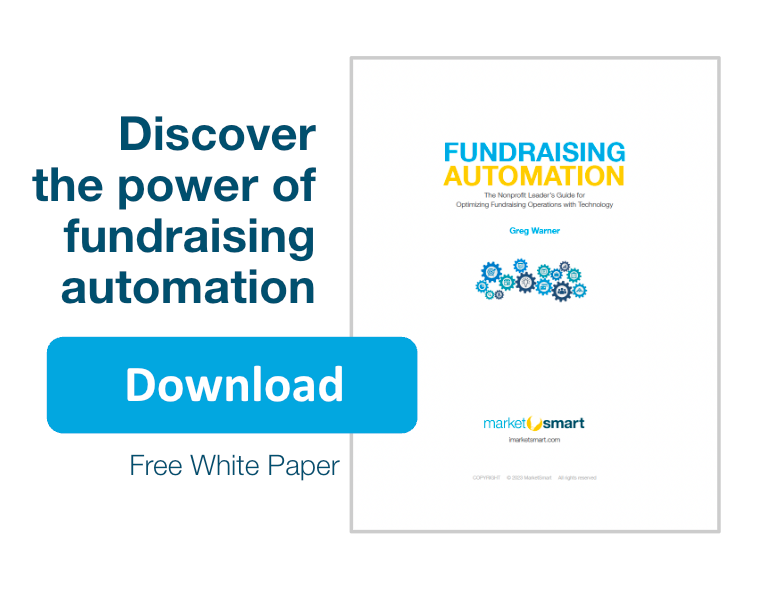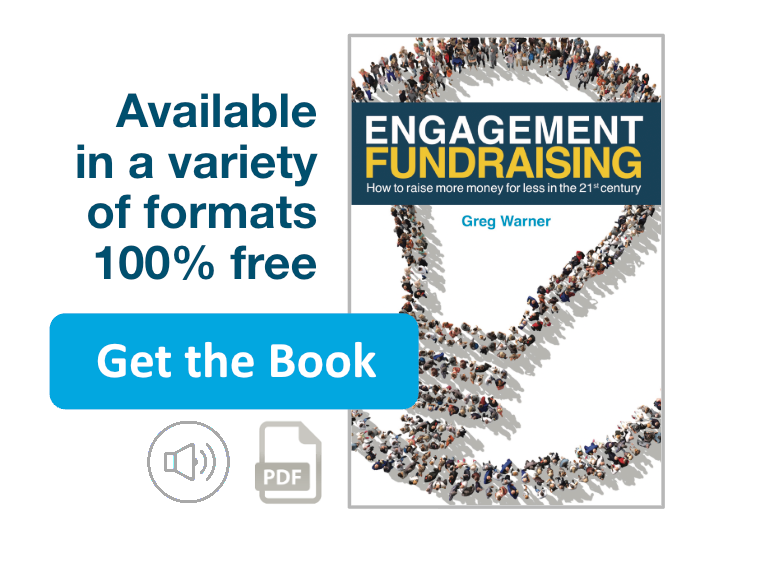The most important goals in managing prospects or donors in our portfolios are:
- Establishing a rapport with donors
- Maintaining contact
- Finding ways for them to feel more connected
- Building trust
The “moves management” school would have us believe that donors can be steadily nudged into making financial commitments as if philanthropic decision-making was a completely linear process masterminded by fundraisers. It’s neither.
Then there’s the “just pick up the phone” or “just go meet with your donors” which seems to assume that donors:
- Don’t have much of a life
- Will take a meeting without knowing the purpose
- Don’t wonder what in the blue blazes you’re up to
- Will be eager to meet again just to chit-chat
But there is a happy medium between moves management and “let’s do lunch.” I’ll call it consistent “connection-making”. It’s more like spot welding where you just tried to strengthen connection here and there, not just by checking in but by trying to bring them closer to your mission, to bring them inside the organization, to encourage them to be honest with you, and to demonstrate that they matter.
Yes, of course, there is a time to be more direct, to try an idea on them, and to see if something in particular lights their philanthropic fire. But a long ignored or disconnected donor is not going to warm to such a conversation whereas one who has been kept warm through regular interaction is much more likely to.
We keep them warm by checking in regularly, asking good questions, asking them to help us in small, manageable but meaningful ways, and treating them like stakeholders. Some suggestions are offered below in hopes of encouraging you to contribute to the list so we can learn from one another.
We should never let a month go by without a meaningful interaction with each prospect or donor. That’s what portfolio management really entails. If we do that well, we not only make them feel valued but we learn more about them each time we interact with them. This will prove of immense value when we want to be more explicit about seeking their support. Through lots of mini interactions, we will build more rapport and trust, and each interaction, if thoughtfully construed, will give us a much clearer sense of what they will and will not be receptive to and how to have a comfortable conversation about how we might work together to achieve objectives that require financial support.
Master Meaningful Interactions with Donors in Your Portfolio, Don’t Make “Moves”
- Share a recent achievement or milestone that will build their confidence in the organization
- Ask them if they would give some advice to a colleague new to the advancement field
- Share something you witnessed that reinforced the importance of your mission (and you wish every donor could have seen)
- Ask them to critique your last giving day
- Ask them if they’re thinking about creating a donor advised fund and, if so, why
- Share a moving backstory about a recent gift, e.g., how a donor turned personal pain into philanthropic purpose
- Tell them about a tough decision your CEO had to make or is about to make
- Ask them how important a website is in making a philanthropic decision, and how your website stacks up
- Ask them for a quick strategic assessment: what’s our greatest opportunity, our greatest external threat, our greatest organizational strength and our most glaring internal weakness
- Tell them about another donor that you think they would like and offer to make an introduction
Jim Langley is the president of Langley Innovations. Langley Innovations provides a range of services to its clients to help them understand the cultural underpinnings of philanthropy and the psychology of donors and, with that knowledge, to develop the most effective strategies and tactics to build broader and more lasting communities of support. Jim has authored numerous books including his most recent book, The Future of Fundraising: Adapting to New Philanthropic Realities, published by Academic Impressions in 2020.
Related Resources:
- Webinar: 4-Step Process for “Reimagining Fundraising Operations”
- The Power of Building Relationships: Why Donors Need Good Fundraisers
- Planting Seeds: The Step Before Cultivation
- How Fundraising Overcomplicated Philanthropic Facilitation




